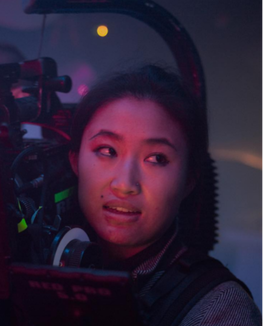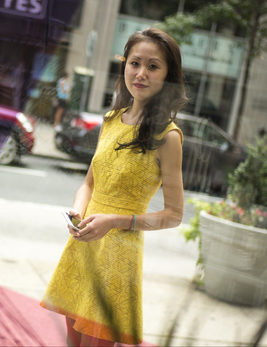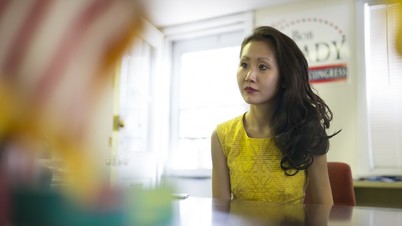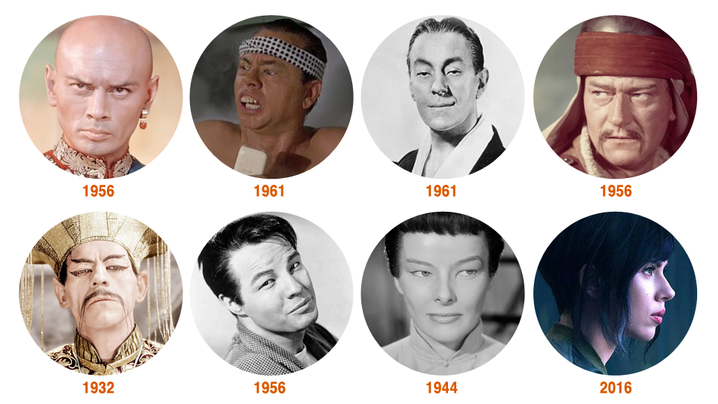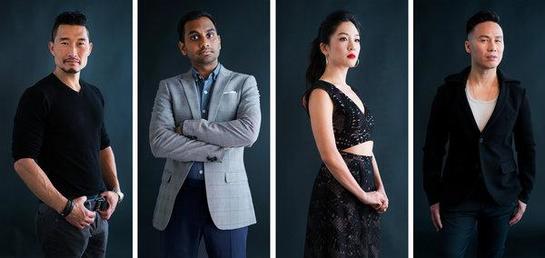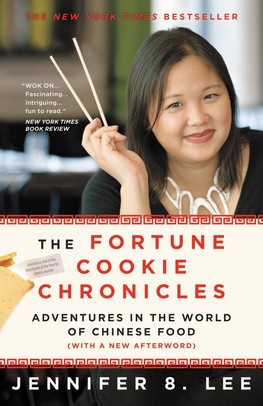This "RepresentASIAN" article is about Daisy Zhou, a Chinese-American woman who is defying all of the stereotypes and making a name of her own in a tough industry where Asians are most underrepresented. Born in Shanghai, Zhou moved to the United States at the age of five and spent a majority of her childhood and education in America. Originally hoping to major in English or History in college, she fell in love with cinematography and chose to stray from her plan, taking a risk and applying to New York University's Tisch School of the Arts. She graduated with a Bachelor of Fine Arts in Film and TV. For a while, it seemed as if things were moving slowly in comparison to her brother, who had majored in computer science and quickly secured a job. It was unclear where her chosen career would lead her as she remained true to her passion and worked tirelessly to direct various originals. It was Zhou's speculative screenplay piece on dancer Omari Mizrahi, however, that eventually caught the eye of Nike, which offered her a shot at large exposure and sent her uncertain career off to a running start. She was asked to write, direct, and shoot a commercial for their “Be True” campaign that would launch in June 2017 for LGBTQ Pride month and worked with transgender dancer Leimoy Maldonado to create the following masterpiece in just a week. Zhou's work speaks for herself. Her stunning cinematography was a major hit and has received outpouring support, as well as over 73,000 views on YouTube and 33,000 views on Instagram as of August 2017. This is probably... the most amazingly illustrated, beautifully edited & narrated, and most inspiring advertisement... that has ever been put together! Zhou's commercial has appeared on 34th Street & 7th Avenue, a major crosstown street near Times Square. It was described by Adweek as "striking" and "poetic," and it was also ranked as the #1 commercial Worldwide. Her transition from a hopeful, unknown filmmaker to a collaborator with one of the world's biggest brands truly embodies the spirit of the American dream. I was able to interview Daisy about her triumphs and the road it took her to get there. Her edgy, approachable, and genuine personality shines through in her answers: 1. When or how did you discover your passion for filmmaking? Filmmaking was something I discovered in high school−I flirted with the idea of maybe one day making films but never actually dared to pursue. It wasn't until college that I−at the very last minute that I dared to go for it−applied to Tisch's film program. I think I fell in love with it when I realized I felt truly myself doing this. Whatever shitty job I was doing at first−it still felt right, it still felt like something I SHOULD do. From that moment on I've kept on this path and will stay. 2. Has being a minority helped or hindered your path to success in any way? I'm pretty young, so it's hard to tell what exactly it is that's preventing me from moving as quickly as I should. And truthfully, I'm happy to be where I am. I think as a POC and woman, it's difficult to be in a position where you're always "different" or the outlier. There are many projects that probably don't want “different.” Part of this process is to be okay with that. The answer maybe isn't with them but with what YOU can bring to the table. I give myself responsibility to do that. 3. What is your message to young Asian-Americans who feel obliged to meet stereotypes or are discouraged due to lack of representation in certain areas? (For example, there are few Asians in the film industry). I’d say−It's almost a law that doing anything well is difficult if you don't believe or want to do it. If you feel it in your bones that making films or art or joining the circus is right for you, then you will find a way. Emotions are a powerful driving force. Loving what you do will protect you from giving up, will push you to excel, and fulfill you. My parents are so proud of me for what I do because I found my success all on my own. But this pride took time, as did my work. It's never easy to get to the top, but Zhou's consistent efforts have shown that having big dreams as well as the drive to pursue them will always be rewarding in one way or another. This is only the beginning for her unique career, and I'm sure "Daisy Zhou" will be a name we will be hearing again and again in the near future. Author: Claire Cao
Through "RepresentASIAN", we will introduce and interview a flourishing representative of the Asian community to empower minorities as a whole and recognize the brilliant feats they are capable of. We will highlight less-prominent figures for their contributions towards increasing diversity and their outstanding achievements in various occupations. In other words, these are names you may have never heard of that deserve to be in the spotlight!
Now, Li is focused on her largest goal yet: A seat in the U.S. House of Representatives. For the past few years, she has campaigned for support among the many districts of Philadelphia. “They don’t know what they’re dealing with,” Li says of her critics, who argue that she is too young and overly ambitious. “No one wants this more than me.” I interviewed Ms. Li over the phone to understand how she obtains the courage to follow her unconventional dreams:
2. Any advice for young Asians who feel like they must follow a "conventional" path to success? Growing up Asian isn't always the easiest... [But] they don’t know what they’re dealing with. If you want something bad enough, even if it's not the standard "Asian success story," you’ll figure out a way to get it. Never stop fighting. Even a loss won’t stop Lindy Li from getting what she wants. “Congressional elections are every two years, you know,” she has stated. She’ll keep trying until she gets there, and we believe in her tremendously! Author: Claire Cao
In Los Angeles, they say everything is possible. Dreams come true in the City of Angels. However, there is a much darker side to the world’s largest entertainment industry. Beyond the big screen and the flashing cameras, Asian discrimination is rampant. Even though it is never directly stated, everything is taken into consideration when choosing a cast. Unfortunately, ethnicity is one of these things. In the 2015 film Aloha, for example, actress Emma Stone was chosen to portray a half Chinese character. In other words, she was the "whitest Asian" Hollywood could find. Critics say this “culturally insensitive casting” likely caused the poor performance. Another more recent example of Asian discrimination occurred in the 2017 film, Ghost in the Shell, which is based off of the internationally acclaimed Japanese Manga. White actress Scarlett Johansson was cast to play the role of Major Motoko Kusanagi, a part-human-part-cyborg hybrid. Numerous Asian-American actresses have since spoken out about the whitewashing of this incident, including Constance Wu and Ming-Na Wen. Historically, “yellow face,” or the portrayal of Asians by non-Asians in Hollywood, has also been prevalent. In the iconic 1961 movie Breakfast at Tiffany’s, white actor Mickey Rooney portrayed a Japanese man by pulling his eyes back with tape and speaking in an offensive, exaggerated accent. Asian representation simply isn’t prominent enough in Hollywood. There are rarely any cases in which Asians have been cast as leads in blockbuster movies. They are usually sidekicks, unattractive nerds, or exotic girls thrown in to meet a “diversity quota.” Hollywood needs to recognize that there are hundreds of skilled Asian-American actors and actresses who are just as talented as their Caucasian counterparts. It is imperative that Asians are properly represented in Western culture in order to deliver an accurate representation of the diversity in America. Authors: Carina Sun and Claire Cao
This commercial was based on the following original work of Claire Cao and was created by filmmaker Joshua Seftel and the team at Smartypants Pictures in Brooklyn, New York City. Two months after the 1941 Japanese attack on Pearl Harbor, President Roosevelt authorized Executive Order 9066. It labeled 120,000 Japanese Americans as national security threats and forced them into internment camps, instantly crushing their freedom. Among these oppressed people, Fred Korematsu−a young Japanese American−resisted this violation of his rights with a lawsuit against the United States. His case was eventually brought to the Supreme Court, where he lost. Later, Korematsu stated “Every day, we pledged to the flag, 'with liberty and justice for all.’ Yet… I was branded as an alien when I was American. If you have the feeling that something is wrong, don't be afraid to speak up.” Eventually becoming a civil liberties icon, Fred Korematsu and his story have enormously influenced my ethical decisions and efforts to make a difference as a citizen. My name is Claire Cao. As a Chinese-American living in a predominantly white town, growing up hasn’t always been simple. I was the only Asian in my grade throughout my seven years of elementary school, and I will never forget when someone asked, “Why does Claire’s face look so weird?” Since then, I became extremely self-conscious that I was the outlier among my peers and desperately tried to conform to my surroundings. Fred Korematsu’s advice to “speak up” against unfairness seemed unrealistic and less than necessary in comparison to my acceptance. Everything changed in July 2015, when I volunteered as a camp counselor. I watched as a Chinese American girl stood outside a sandbox full of children. “You can’t play with us. You’re different!” the kids sneered. She was being segregated for her appearance. I realized that her situation was no different than when Korematsu was isolated for being an “alien.” At that moment, his words flashed through my mind: “If you have the feeling that something is wrong, don't be afraid to speak up.” Typically, I would’ve avoided the situation. Yet the words “Speak up” encouraged me to approach the girl. “A good person is one who does the right thing, but being different doesn’t make someone bad,” I smiled. “In the end, people are people. Why don’t you play with me?” I led her to the sandbox, where the children grew silent. Shocked, they parted to allow us to enter. Korematsu influenced me to make a moral decision for someone else that day and has taught me that choices that promote acceptance, respect, and understanding can make a difference. I realized that moral decisions should be based on what is right rather than what is safe or easy. And that day, I became determined to set aside my preexisting fears to speak up like Korematsu. Since then, Korematsu’s courage has allowed me to realize it is my duty as a citizen to defy stereotypes, defend my values, condemn discrimination, and oppose injustice. I must demonstrate and inspire equality for all humanity to truly contribute to the democracy I live in. Although there is a long way to go in reaching some of this country’s ideals, Fred Korematsu’s story has inspired me to strive for a future where Americans truly have “liberty and justice for all” by grasping every chance to speak up. Author: Claire Cao
I am so grateful that my parents have made an effort to keep me connected to my culture. I don't take my travels to China for granted, and I feel so lucky that I have a family who makes it a priority to have me embrace my culture. China, a country that may seem very foreign to those in the United States, is home to a unique culture, history, and community. For those who haven't gotten a chance to see for themselves how amazing this place can be, here is a firsthand look at the wonders of the city and the countryside!
This vlog admittedly doesn't have very good cinematography, but nonetheless, it does its part in showing the beautiful parts of the Beijing's culture. Author: Carina Sun Occasionally, DeclarASIAN will select and introduce a flourishing representative of the Asian community in order to empower minorities as a whole and recognize the brilliant feats that they are capable of. We will highlight less-prominent figures for their contributions towards promoting diversity and their outstanding achievements in various occupations. In other words, these are names you may have never heard of before that deserve to be in the spotlight!
1. Young Asian-Americans often feel lots of pressure to pursue “success.” What is your definition of success? Do you have any advice for today’s Asian-American youth? It's not everyday you see a POC as a dancer. I know a lot of immigrant parents expect their kids to go into something that pays well, and dance likely isn't at the top of the list, but when you find something you love and follow that dream fearlessly, you will achieve success. I promise. 2. Where do you see yourself in twenty years? Thirty? Forty? Still dancing. It's what I have and will dedicate my life to. I'll never stop! Author: Claire Cao
Later in her blossoming career, Lee wrote The Fortune Cookie Chronicles, a book that “traces the history of Chinese-American experience through the lens of the food” and “speaks to the immigrant experience as a whole and the way it has shaped our country” (Lee). She appeared on The Colbert Report to promote the book, which reached #26 on the New York Times Best Seller list. She was also a producer for the documentary, The Search for General Tso, which explores the origins of the popular chicken dish in America's Chinese restaurants. We chose to dedicate our first “Blog Spotlight” to Jennifer 8. Lee, because she stays true to her roots by studying, embracing, and informing others about her culture with poised writing backed by copious research. She has defined her own success in America and represents the endless abilities of minorities in all she does. I was fortunate enough to interview Ms. Lee about her immense success as an Asian-American: 1. When or how did you discover your love for writing? I joined my high school newspaper and became Co-Editor-in-Chief. 2. Has being a minority helped or hindered your path to success in any way? I think it helped to be Chinese-American because I had multiple language skills. There are so many benefits of being bilingual, so it's very important to learn and embrace that! 3. What is your message to young Asian Americans who are too afraid to pursue their dreams due to certain racial stereotypes? (For example, many Asian parents encourage their children to seek STEM careers). You are likely to be great at and have an intrinsic motivation for what you are passionate about. You are less likely to be good at something you are blasé about, and the impact you will make in that area will be limited. If you don't enjoy what you do, find something else that will allow you to genuinely make a positive change in the world around you. Lee gets right to the point: She found her voice through her words, and she is encouraging you to find yours, too. Author: Claire Cao
So...what is DeclarASIAN? Technically, we aren't a non-profit (yet). Rather, we are a movement. DeclarASIAN represents the growing wave of Asian teenagers across the globe as we learn to accept and empower ourselves and our culture. Our movement is made possible by you guys. Our readers. One of our defining features is highlighting "Declarations" submitted by young Asian activists, and to give them a voice. This feature was especially important to me, because I felt like there wasn't a real place I could speak my mind on issues regarding my ethnicity and culture. I remember as a kid, I would turn to reddit anonymous communities to talk about my insecurities and struggles. No one else seemed to want to listen, and it wasn't something I wanted to talk about with my family. By allowing others to voice their opinions on this platform, we are able to create a community for safe engagement and expression. In other words, I felt alone growing up as an Asian-American in a predominantly white town. While I am positive that everyone has different experiences, whether it be growing up in a town where you feel like a minority, or in a town where you aren't a minority, most of us have faced the same struggles of embracing our culture. Long term, I think the goal for me and Claire is to transform DeclarASIAN into a movement beyond the screens. We aim to create a global community of ambassadors who will spread our message and continue empowering each other with events and opportunities to get involved in person! That may be a long way away, but I believe that our message is more than important enough to spread. This all starts with you. Submit your declaration today and join the movement! Author: Carina Sun
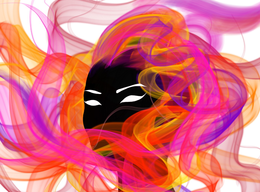 DeclarASIAN is confident that today's generation has the ability to make lasting change and improve society. DeclarASIAN is confident that today's generation has the ability to make lasting change and improve society. Racial profiling, mockery, and stereotypes against Asians have existed in the United States since the first immigrants arrived. Why is this issue still so overlooked? In 2017, awareness and activism towards creating equality in society is becoming increasingly widespread. Change is happening, and that’s awesome−But it isn’t happening enough. From my personal experience as a Chinese-American, I feel as if Asian racism is especially ignored in this country. In society, disrespecting us to our faces, blatantly stereotyping us, and mocking our facial features has almost become comical, and not enough people seem to bat an eye when it occurs. Growing up, I have become accustomed to hearing giggles when someone tries to pronounce my last name. People have asked on numerous occasions, “Do you have strict Asian tiger parents?” without considering the stereotypes they have just said. My achievements are discredited time and time again because “you’re Asian and you’re supposed to be smart,” while I can’t even play tennis or a violin without someone making a remark that these are “typical Asian skills.” They complain that my food smells bad and that my language sounds funny, yet say that my culture is "cool" when it fits their aesthetic. Even now, when some of my closest friends crack the occasional Asian joke (with no harmful intentions), I realize that this racism has become so tolerated because we never fight back. No one wants to be the lame, "butthurt" friend who can’t take a joke, so I often find myself laughing along or initiating the joke myself before someone else can. From missing stories of Asian genocides in the history books to the lack of diversity in the Western entertainment industry, I know that this problem is larger than just myself and that inequality has affected Asian-Americans as a whole. I want to change that. Before I go on, let me make it clear that I do recognize that Asians are not the only minorities to experience prejudice. Stereotypes against Muslim-Americans, especially after the September 11th attacks, remains prevalent. Too often, innocent black Americans are racially profiled by police officers. Gay marriage continues to be a controversial topic that some people are intolerant towards. Historically and in modern times, Jewish people are discriminated against for their religious beliefs. However, powerful groups such as Black Lives Matter are tackling these issues, while informational documentaries such as The Secret Life of Muslims (which I highly recommend) are defying harmful generalizations. The annual Pride Parade in New York City serves as representation for the LGBTQ+ community, and the United States Holocaust Memorial Museum is combating antisemitism. This is why I have co-founded DeclarASIAN. It’s time for Asian-Americans to join the movement, as well. Author: Claire Cao |
Articles2017
8/4/17- It's Time for Asian-Americans to Join the Movement
8/5/17- The DeclarASIAN Movement 8/13/17- RepresentASIAN: Interview with Author Jennifer 8. Lee 9/2/17- RepresentASIAN: Interview with Rockette Jackie Aitken 9/17/17- Diversity Vlog: Carina's Visit to China 9/20/17- Facing History and Ourselves 10/14/17- Asians and Hollywood 11/16/17- RepresentASIAN: Interview with Future Congresswoman Lindy Li 12/20/17- RepresentASIAN: Interview with Nike Cinematographer Daisy Zhou |

